Volunteer spotlight: Editorial Intern Cecilia Mwakenya
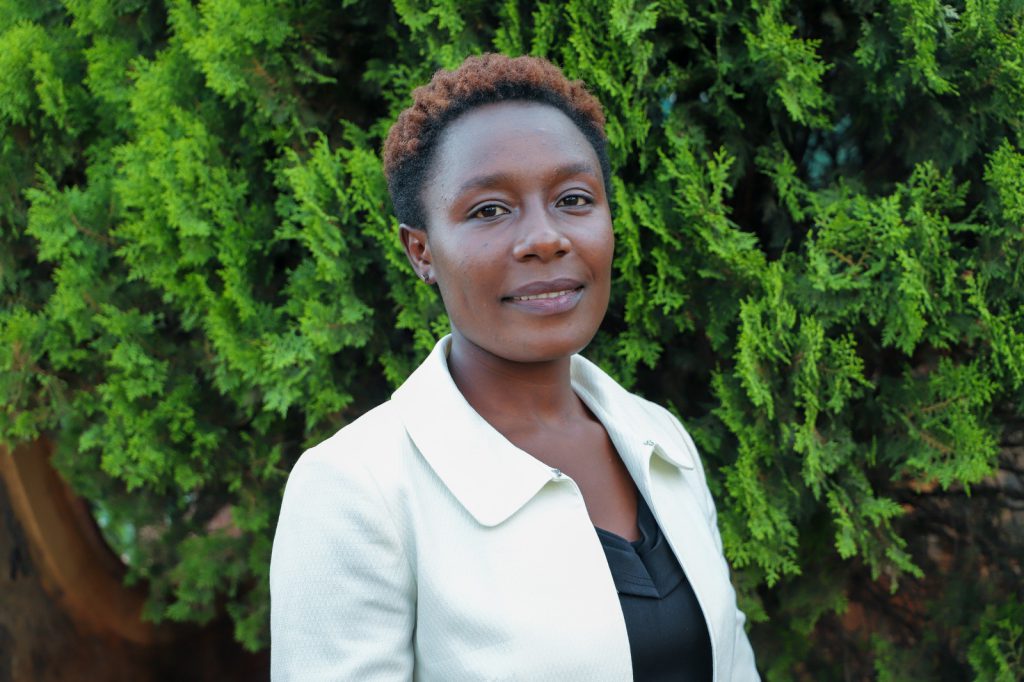
Cecilia Mwakenya is a journalist, and a recent graduate from Rural Aid Kenya, where she pursued a diploma in communications (broadcast option). Previously, she worked as a social media volunteer at Tunza Dada, as well as a news reporter at Hekima FM and the Kenya Broadcasting Corporation (KBC). Cecilia is passionate about women and girl’s empowerment and has been telling human interest stories on human rights and education. She is excited to work with Sahiyo to help end female genital cutting among Asian and other communities. What was your experience of learning about female genital cutting (FGC) for the first time like? My first time encountering FGC was when I was thirteen years old. Growing up, I had no idea FGC existed, despite the fact that it was all around me. It was a surprising and terrifying experience because I learned about it from someone who went through the cut. I felt so bad and it left me with a strong desire to learn more about FGC, which is where my need to fight against FGC began. When and how did you first get involved with Sahiyo? I’ve known about Sahiyo since I was in school, when I was doing research for a project about FGC. In January 2023, I applied for the role of Editorial Intern. I was delighted to see an organization that shares the same values and interests looking for someone to support their work. I have a background in communications journalism, where I enjoy telling human interest stories as well as empowering women and girls to be better members in society. What does your work with Sahiyo involve? I work on writing blog posts, assisting with editing , transcribing interviews for research and the blog, and fact-checking when needed. How has your involvement with Sahiyo impacted your life? Joining Sahiyo has been amazing. I feel so passionate about the work and the organization. Working with a team of supportive, strong, and hardworking women makes me feel so confident that I am in the right place with the right people. Since the day I joined Sahiyo, it has challenged me to grow career-wise and be confident.I feel really inspired, and I am proud of who I am becoming. I am so happy and lucky that I am working with Sahiyo, as it grows I also grow and learn. What words of wisdom would you like to share with others who may be interested in supporting Sahiyo and the movement against FGC? Sahiyo is the right place to be. It gives you hope and sees the best in you. If you have the skills and you are passionate about Sahiyo, joining will be valuable to you because you will leave feeling motivated and empowered.
Sahiyo spotlight: Incoming U.S. Advisory Board Vice Chair Sakina Sharp
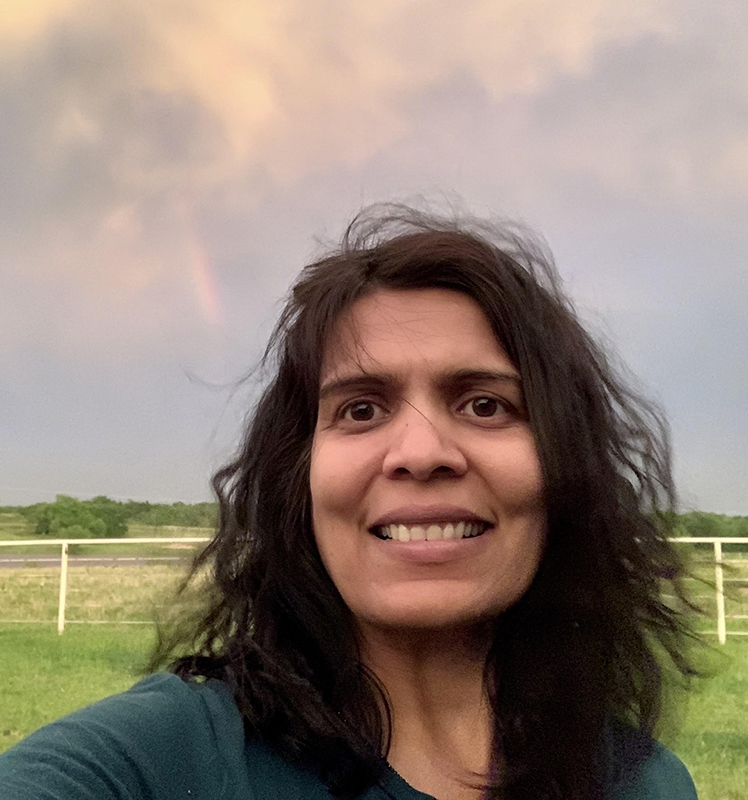
Sakina Sharp has advocated against gender-based violence for over two decades. In 2011, she co-founded Awaaz, a 501(c)(3) non-profit organization to help survivors of domestic violence. She led it in an executive leadership and board capacity for 7 years. Sakina is a legal and compliance executive with 20+ years of experience in insurance regulatory and privacy law, advising large financial services organizations. She received her J.D. from Brooklyn Law School and her B.A. from New York University. Sakina is proud to be a girl mom. When did you first become involved with Sahiyo? I first became involved with Sahiyo in 2018. I was trying to find information on female genital cutting (FGC) in the Bohra community, and I found Sahiyo. I checked Sahiyo’s Facebook page and could not believe that such a community existed; I was so happy. I called Mariya Taher within a few weeks and asked her about how I could be involved. Now, here I am. In your new role as Vice Chair of Sahiyo’s Advisory Board, what are some goals, both short-term and long-term, that you are aiming to work towards? My goals for Sahiyo remain what they were when I started with Sahiyo: to get the awareness of female genital cutting (FGC) out, and to allow space for other survivors of FGC to tell their stories. Storytelling is very powerful– that’s what drew me to the work that Sahiyo does. That’s what makes Sahiyo a unique and compelling nonprofit, and I would like to focus more on that this year. What are you most looking forward to? One of the things I’m most looking forward to is learning more about the inner workings of Sahiyo. As an Advisory Board member, we get a glimpse into what Sahiyo does, but are not fully engaged with its work on a day-to-day basis. As a small nonprofit, I think Sahiyo has done tremendous work in such a short amount of time under Mariya’s leadership, and I want to see how that is done through a closer lens. As a lawyer, can you provide us with some insights into the legal realm of FGC that you have developed over the course of your career? So, I struggle with the role of law in FGC, and I find myself in an interesting position. The reason I say this is because prior to getting involved with the work to prevent FGC, I did a lot of work with domestic violence (DV) prevention. Part of the reason I became a lawyer was because I thought that the law would do a lot for minimizing the prevalence of domestic violence. I found that the impact of law was not, I guess, that impactful for DV. And that’s why I struggle with it for FGC. I think it’s important for us to have laws that ban the practice; it’s important for us to have laws that define FGC to include khatna. I think those are very important table stakes to set the standard in our community of what’s acceptable and what’s not acceptable. I think it’s also important for the Bohra community, the community I belong to, because the belief in the community is that the law of the land is what the people of the community need to go by. So if the law of the land is, you can’t do this, then by default, the religion is saying, you can’t do this. Now, how impactful that is in practice, I don’t know. As a survivor, I feel like storytelling is more impactful, because it reaches people more deeply. It communicates to people how prevalent FGC is, how it has impacted people who have either undergone it, or those who know people who have undergone it, or those who have promoted the practice. What, according to you, is the most urgent calling that needs to be supported in order to reach our goal of ending this practice? Recently I read something that Sahiyo had put out in their Annual Report about critical mass: if there are more voices, if there are enough people in a community who say no, this practice cannot happen. Then only real change can be achieved. Getting enough people to understand it, getting enough people to talk about it, and getting enough resources and education out there, is what I think is going to get us to a critical mass. That is what I want to work toward with Sahiyo.
Sahiyo spotlight: Outgoing U.S. Advisory Board Chair Arefa Cassoobhoy

Arefa Cassoobhoy is a board certified internal medicine physician with expertise in digital health communications. She is committed to raising awareness of topics like female genital cutting and is honored to have served as chair of the Sahiyo U.S. advisory board from 2021-2023. An advocate for health equity and health literacy, she treats patients and is on the board of directors at the nonprofit Clarkston Community Health Center in Georgia. She is also on the Emory School of Medicine alumni board. She is the former chief medical editor at Everyday Health and was a senior medical director at WebMD and senior medical correspondent at Medscape. When did you first become involved with Sahiyo? In 2018 I was researching female genital cutting (FGC) for an article on WebMD when I came across Sahiyo’s media toolkit. It was so well done – helpful and thorough without sensationalizing the topic – that I reached out to Mariya Taher, a cofounder of Sahiyo, to learn more about the nuances of FGC in the U.S. and globally. With her input, I went on to produce a video educating clinicians for Medscape.com in 2019 and started the process for a continuing medical education activity at Medscape.org produced in 2020. From there, my involvement with Sahiyo grew easily, because we share the same mission of educating and empowering individuals to make choices for their body themselves. I worked more with Mariya at conferences, online events, and joined the Sahiyo U.S. Advisory Board, eventually becoming the Chair. How do you think your background in internal medicine lends itself to Sahiyo’s mission to end female genital cutting (FGC)? People who experience FGC may need assistance from a variety of specialists, whether it’s medical and mental health treatment or social and legal assistance. As an internist in the health media space, I’ve been able to support raising awareness about FGC and its consequences with the goal of stopping it from occurring. And I’ve been able to encourage health and medical education for the many groups involved, including survivors, healthcare workers who need the knowledge and skills to appropriately and with empathy treat their patients, and other community members and workers. What does this work mean to you? The work Sahiyo does is special to me because I come from a community that practices FGC and I want that to stop. What were your goals as the Sahiyo U.S. Advisory Board Chair? Do you think they were accomplished? One key goal I had as the Advisory Board Chair was to support a budget increase for the organization; I’m proud to say during my time as Chair that Sahiyo’s yearly budget tripled. It’s been incredible watching the Sahiyo team broaden the scope of grant applications and initiate new fundraising events like the Silent Auction that just finished. With this added revenue they’ve been able to expand their work dramatically. As you transition out of this role, how do you hope to continue supporting Sahiyo? I plan to continue working with Sahiyo as much as I have been. We have a retreat coming up this year I am excited about. More info to come!
Sahiyo International Women’s Day Celebration & Silent Auction Donor Spotlight: Lisa Fiore
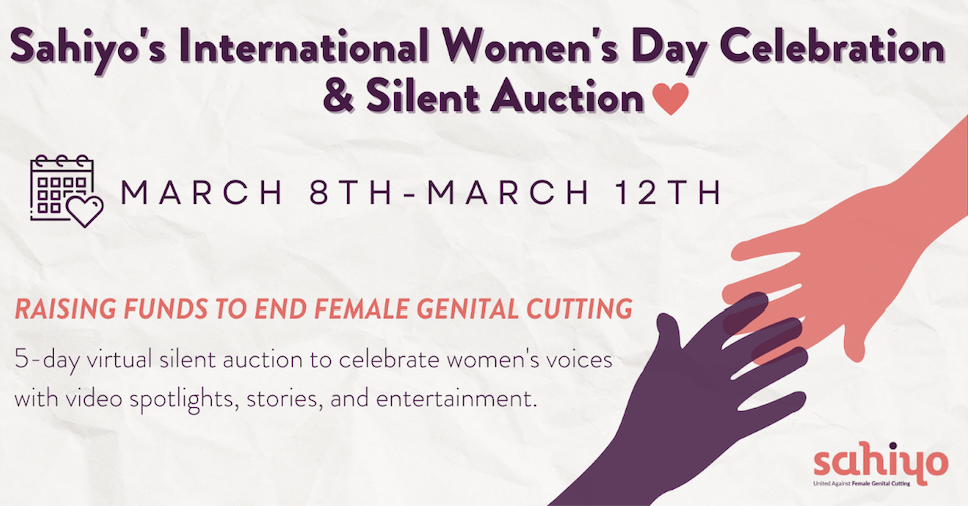
Starting March 8th, International Women’s Day, Sahiyo U.S. will be hosting a virtual silent auction to raise funds and awareness for our programs and services to end female genital cutting (FGC). The auction will open on Wednesday, March 8th, 9am PST/ 12pm EST and close on Sunday, March 12th, 6pm PST/ 9pm EST. We have some amazing sponsors and auction items have been provided by our supporters., To uplift and thank them for their contribution, we’re highlighting who they are and why they support Sahiyo. When and how did your involvement with Sahiyo first begin? My involvement with Sahiyo began when the Violence Against Women Initiative at Lesley University began planning for a panel discussion in 2017. That would be a prelude to the formal conference and exhibition that we held in fall 2018. Mariya Taher has been a regular presence in our evolving efforts for many years, due to her own connections to Lesley University. Why did you decide to give to Sahiyo’s silent auction? What does the event mean to you? I was more than happy to contribute an item to this auction to be part of the momentum behind efforts to raise awareness about FGM/C. Sahiyo’s mission is so important – to women, to allies, to global partners who can make a difference and empower survivors through systemic efforts. It’s not easy to enact change when practices and forces have been in place for thousands of years, and the people in positions of power as well as oppressors are reluctant to lose their power. Every ounce of awareness contributes to the growing ripple effect that can make a difference for generations of women and girls. What did you donate? My family donated a pair of Red Sox tickets to the auction. We’re hoping that people can enjoy a wonderful game at Fenway Park! Red Sox games have brought our family decades of joy (and heartache) – there’s nothing like a great game in Boston! How would you like to see your donation help Sahiyo grow? I’ll be delighted to know that someone chose to purchase the tickets because they wanted to support Sahiyo. It would be wonderful if the auction items draw people to the organization who weren’t aware of Sahiyo before, therefore increasing awareness of the work. Why do you think others should donate to Sahiyo? The greater the donations, the greater the reach of the work. More than the specific amount that people donate is the impact of giving, period. It’s more impactful to have more people contributing to this critical work.
Sahiyo’s International Women’s Day Celebration & Silent Auction Donor Spotlight: Doris Mukangu of the Amani Women Center
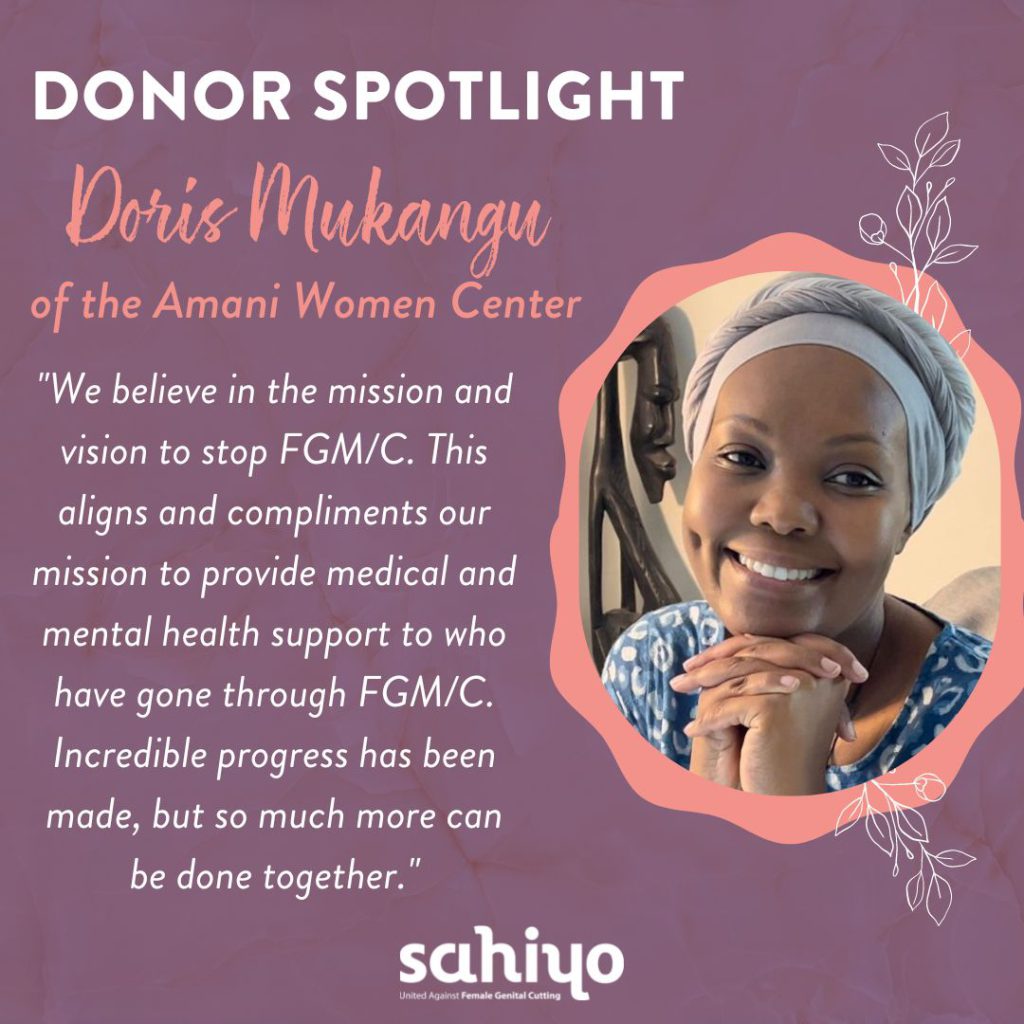
Starting March 8th, International Women’s Day, Sahiyo U.S. will be hosting a virtual silent auction to raise funds and awareness for our programs and services to end female genital cutting (FGC). The auction will open on Wednesday, March 8th, 9am PST/ 12pm EST and close on Sunday, March 12th, 6pm PST/ 9pm EST. We have some amazing sponsors and auction items have been provided by our supporters., To uplift and thank them for their contribution, we’re highlighting who they are and why they support Sahiyo. Can you tell us more about how Amani Women Center and your work within the FGM/C sphere came to be? The Amani Women Center (AWC) provides culturally tailored programs and services that empower and contribute to the economic security, spiritual, mental, and physical well-being of refugee and immigrant women. AWC serves communities where FGM/C is prevalent. What is your connection to the issue of FGM/C? I was co-author on a research study that AWC conducted in partnership with National Opinion Research Center (NORC) at The University of Chicago and the CDC on African refugee women based in Clarkston, Georgia. “The Women’s Health Needs Study of US women from countries with high prevalence of Female Genital Mutilation/Cutting: design, methods, and participant characteristics” – still in process to be published. We found that over 50% of the women who participated in this study have undergone FGM/C. During the study, there was a cry for help from these women to support their medical and emotional needs. What is your SOS initiative? Amani’s Save Our Sisters (SOS) initiative seeks to secure medical care for refugee women in Clarkston, GA suffering from serious health problems caused by FGM/C. By purchasing our cloth button items (necklaces, bookmarks, hair clips and pins, magnets), proudly handcrafted by refugee women at the Amani Sewing Academy, you are helping refugee women access life-changing medical services, including restorative surgery. Each item is one of a kind and will therefore vary from the pictures. Please check them out here. We established a team of compassionate women physicians and a capable counselor as part of our team; our Community Ambassadors serve as interpreters as well, and we educate and support. It is a slow process to which we are unfailingly committed. We are delighted to have had the first vaginal surgery which was very successful and freeing for the woman involved. How did you first hear about Sahiyo and what did you donate? I first heard about Sahiyo through Arefa Cassoobhoy. We donated five beautiful hand-crafted fabric button necklaces proudly made by refugee women. Why did you choose to donate to Sahiyo’s silent auction? AWC is donating to Sahiyo because we believe in the mission and vision to stop FGM/C. This aligns and compliments our mission to provide medical and mental health support to who have gone through FGM/C. How would you like to see your donation help Sahiyo grow? AWC believes in your call to action to end FGM/C. Incredible progress has been made, but so much more can be done together. AWC would like to see the donations support your efforts to raise funds to expand awareness for your mission. How can organizations like Amani Women Center and Sahiyo collaborate to achieve our common goal of ending FGM/C? We can do exactly what we are doing now, standing together to bring awareness to end FGM/C.
Sahiyo’s International Women’s Day Celebration & Silent Auction Donor Spotlight: Danae Laura
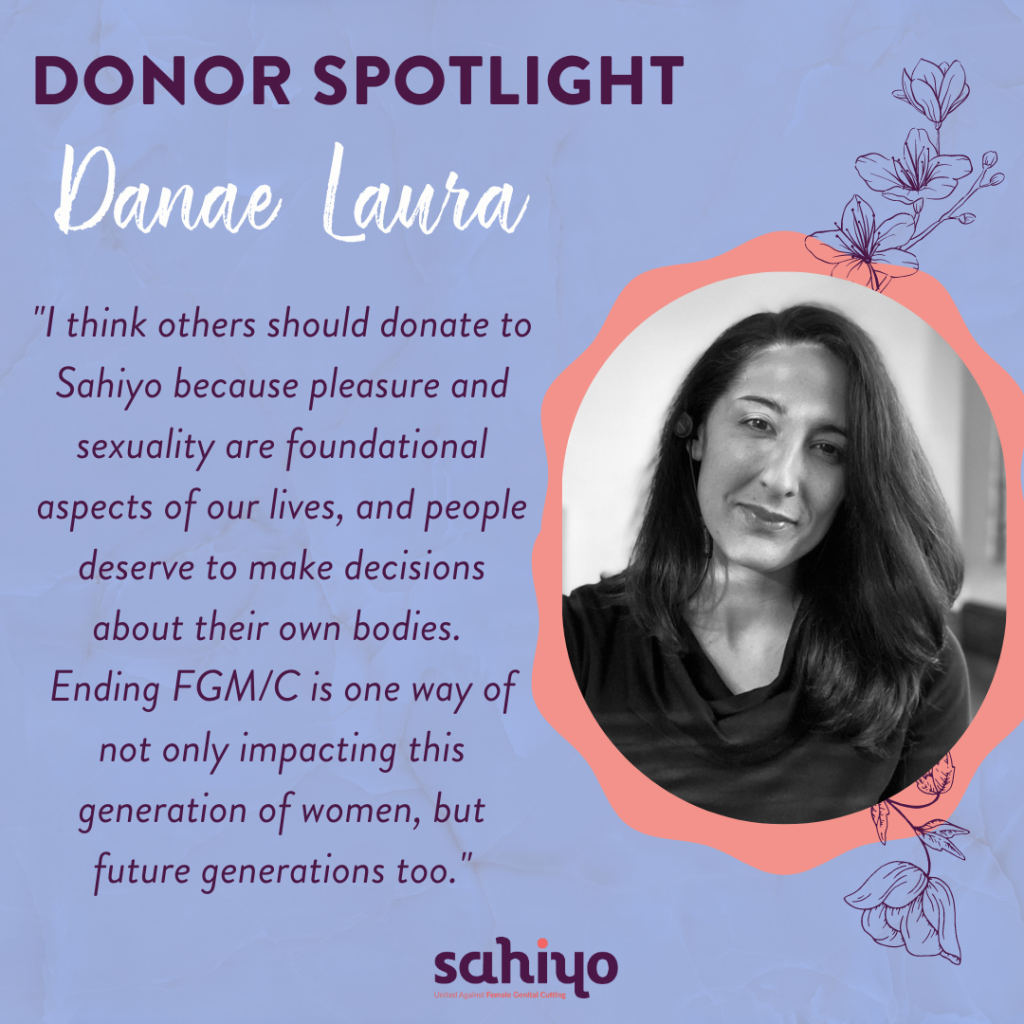
Starting March 8th, International Women’s Day, Sahiyo U.S. will be hosting a virtual silent auction to raise funds and awareness for our programs and services to end female genital cutting (FGC). The auction will open on Wednesday, March 8th, 9am PST/ 12pm EST and close on Sunday, March 12th, 6pm PST/ 9pm EST. We have some amazing sponsors and auction items have been provided by our supporters., To uplift and thank them for their contribution, we’re highlighting who they are and why they support Sahiyo. When and how did your involvement with Sahiyo first begin? I first learned about Sahiyo from Mariya Taher, one of the founders. A mutual friend introduced us back in 2015 as I was launching my yoga business, Selfmade, dedicated to marginalized bodies. Over the years, I had heard of female genital mutilation/cutting (FGM/C), and definitely imagined it to be occurring outside of the United States, if at all still happening in modern day. As I learned more from Sahiyo about the topic, I saw how it is not only a local and present topic, but also a tender one. Women and men affiliated with Sahiyo are brave in their willingness to speak up, while holding respect for their culture and the people practicing due to tradition. Why did you decide to give to Sahiyo’s silent auction? What does the event mean to you? Over the years I have donated here and there, not only in support of the work itself, but also because I’ve always been impressed by Sahiyo’s unique and creative programming. I am overjoyed to support Sahiyo’s silent auction as they continue to expand their reach, their services, and their organizational structure. I decided to give for these reasons, and am hopeful that the event will have a great turnout! What did you donate? I donated a coaching package of six 30-minute sessions for Executive Leadership or Life-Leadership Coaching ($900 value). Executive Leadership Coaching for CEOs & EDs is thought partnership and external input for those with the title of “leader”. Too often the decision makers at an organization don’t have the much needed chance to process out loud for problem solving, naming gray areas, and nuanced skill improvement. Together, we hold space for complex topics such as organizational culture/strategy/change, programming enhancements, and DEI topics (including self-reflection on your racial identity journey). Life-Leadership Coaching for All is thought partnership and external input for those without the formal title of “leader” who are seeking to access or hone their internal compass. Life is full of constant decisions and opportunity costs. This style of coaching helps one process where they have been, where they are, and where they want to go. In a culture focused on consumption and achievement, Danae helps you to self-define your goals and metrics of success. Sometimes sessions will aim to push you harder, and sometimes sessions will encourage you to fall back. How would you like to see your donation help Sahiyo grow? As someone who has studied both social change and organizational strategy, I know how important it is for nonprofits to receive not only ample funding, but also unrestricted funding specifically. Unrestricted funding will allow Sahiyo to support areas of growth that they know are most urgent, separate from grant requirements. Why do you think others should donate to Sahiyo? As a grassroots organization, Sahiyo impacts the community it is serving while serving them. In other words, the goal of empowering women WHILE ending FGM/C is baked into the process via giving women “the mic” and the chance for their stories to be heard. My heritage is mixed, and does not include a culture that practices FGM, but I am familiar with how women are disempowered physically, economically, and politically by cultural practices. Separate from FGM/C, the common practice of hypersexualizing women and girls while demonizing the expression of sexuality places women at constant odds with our body and sense of safety or self. I think others should donate to Sahiyo because pleasure and sexuality are foundational aspects of our lives, and people deserve to make decisions about their own bodies. Ending FGM/C is one way of not only impacting this generation of women, but future generations too. Pleasure is a source of energy and wisdom for activism (see Adrienne Maree Brown ‘Pleasure Activism’). When we nourish people’s ability to access their basic needs, including pleasure, we have a better chance of addressing the pressing issues of our time.
Sahiyo’s International Women’s Day Celebration & Silent Auction Donor Spotlight: Dr. Akil Taherbhai
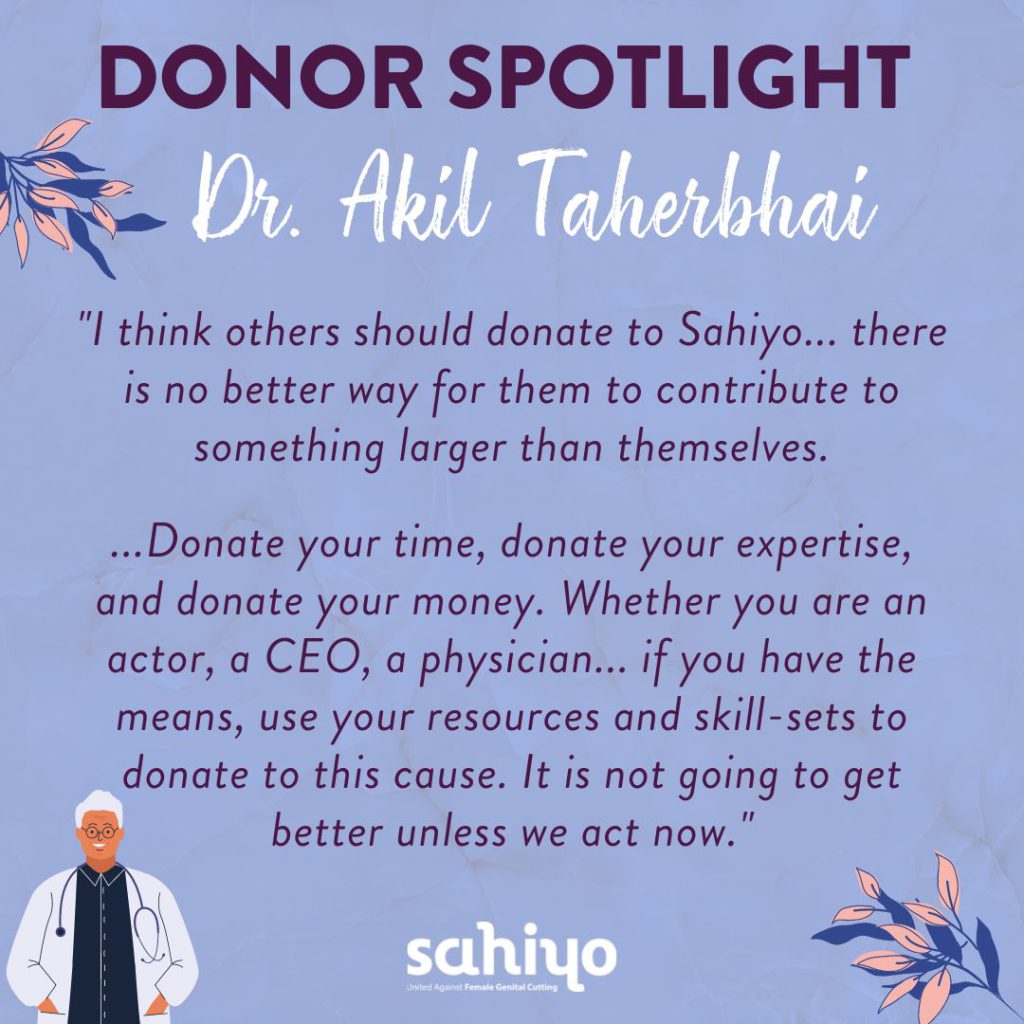
Starting March 8th, International Women’s Day, Sahiyo U.S. will be hosting a virtual silent auction to raise funds and awareness for our programs and services to end female genital cutting (FGC). The auction will open on Wednesday, March 8th, 9am PST/ 12pm EST and close on Sunday, March 12th, 6pm PST/ 9pm EST. We have some amazing sponsors and auction items have been provided by our supporters. To uplift and thank them for their contribution, we’re highlighting who they are and why they support Sahiyo. When and how did your involvement with Sahiyo first begin? So, I think it started when I had a conversation with my cousin, who was familiar with Sahiyo’s work, about FGM/C and he told me about all the great work that Sahiyo is doing. Back in the 70s, I was practicing medicine in The Middle East, and it was a great shock to me that my co-workers and colleagues, all doctors, were circumcising their own daughters. I think that’s when I first began feeling passionate about this issue. I only actively got involved with Sahiyo after speaking with Arefa Casshobhoy, who, at a community gathering, asked me if I’d like to get more familiar with Sahiyo’s work. I said, 100%, this is what I really believe in. Arefa’s a splendid person, and she really pushed me to think about my role in contributing to this work. Why did you decide to donate to Sahiyo’s silent auction? What does the event mean to you? When I saw what Sahiyo was doing, I was immediately committed to helping in any way that I could. The more money we raise, the more work we can do. I don’t mind putting my book out– it has already been well received and reviewed, and I have done hundreds of interviews and podcasts to help people understand heart disease, as it is the leading cause of death in the world today. So, my point is, by donating four copies of my book to Sahiyo’s auction, I want to help the organization raise as much money as possible, while also providing valuable information to the highest bidder. What did you donate? I donated four signed copies of my book, Open Heart, as well as an hour of my time to answer any of the highest bidder’s questions over a Zoom call. I wear three hats- a doctor, an open heart surgery survivor, and a septuagenarian athlete. So, I can and will answer any questions from the highest bidder regarding the prevention of chronic disease, fitness, and open heart surgery. I want people to learn from my shortcomings and mistakes, and at the same time contribute to a cause that is close to me. How would you like to see your donation help Sahiyo grow? My broad focus of the impact of this donation is contributing to ending this practice of FGM/C. I want this cause to be helped, whether it is Nigeria or Egypt or the U.S., or wherever. That is my first aim. And then, if I am needed for other things, such as the Bhaiyo program, I will use whatever expertise I have to contribute to it. I’ve gotten so much from the community, and I want to give back. It is my community, too. Why do you think others should donate to Sahiyo? I think others should donate to Sahiyo, because, in my opinion, there is no better way for them to contribute to something larger than themselves. The message I would give to others is this: donate your time, donate your expertise, and donate your money. Whether you are an actor, a CEO, a physician, or whatever, and if you have the means, use your resources and skill-sets to donate to this cause. It is not going to get better unless we act now. My final message to people is: dig deep in your pockets.
Sahiyo’s International Women’s Day Celebration & Silent Auction Donor Spotlight: Tahir Taherbhai
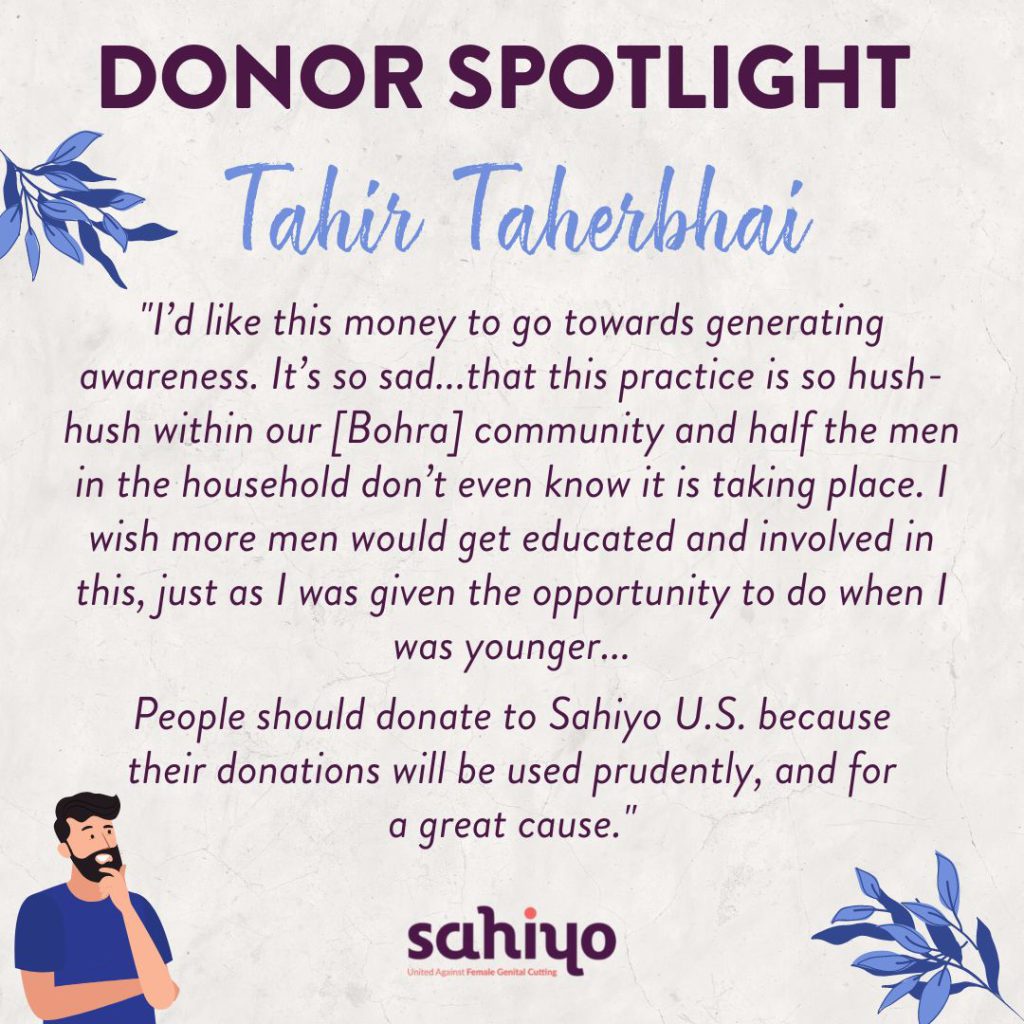
Starting March 8th, International Women’s Day, Sahiyo U.S. will be hosting a virtual silent auction to raise funds and awareness for our programs and services to end female genital cutting (FGC). The auction will open on Wednesday, March 8th, 9am PST/ 12pm EST and close on Sunday, March 12th, 6pm PST/ 9pm EST. We have some amazing sponsors and auction items have been provided by our supporters., To uplift and thank them for their contribution, we’re highlighting who they are and why they support Sahiyo. When and how did your involvement with Sahiyo first begin? I was only very recently formally introduced to Sahiyo by Arefa Casshobhoy, who is the daughter of one of my closest friends. Before that, I knew of the organisation’s existence through my daughter, who had interacted with Sahiyo in California about four years ago. Even then, I was not aware of the work that was being done by the organisation; however, regarding the practice of FGM/C, I have been aware of it since I was in high school, and it is an issue that’s very close to my heart. My cousin, a doctor who was much older than me, talked to me about it as I was growing up. We made sure that it was not practiced within our own family. So when Arefa talked to me about Sahiyo, I was thrilled to learn about the work that you all are doing. Why did you decide to give to Sahiyo’s Silent Auction? What does the event mean to you? When I heard that Sahiyo was hosting its first-ever Auction, I knew I wanted to help in whatever way I could. I knew it would be hard for me to physically get involved because of my age andthe nature of work on Khatna would be overwhelming for me. But, I thought that the least I could do was financially contribute to the cause. What did you donate? I donated $500 in cash, and since I am a franchisee of Taco Bell, I matched my donation with $500 worth of Taco Bell coupons. How would you like your donation to help Sahiyo grow? I think I’d like this money to go towards generating awareness. It’s so sad, you know, that this practice is so hush-hush within our [Bohra] community and half the men in the household don’t even know it is taking place. I wish more men would get educated and involved in this, just as I was given the opportunity to do when I was younger. Why do you think others should donate to Sahiyo? With Sahiyo’s wide volunteer network and people like Arefa on the Advisory Board, I know that the team truly cares about the work that they are doing and the money is going in the right direction. People should donate to Sahiyo U.S. because their donations will be used prudently, and for a great cause. A note from the Editor: If you are interested in male engagement work around FGM/C, we encourage you to look into Sahiyo’s male ally program, Bhaiyo.
Sahiyo’s International Women’s Day Celebration & Silent Auction Donor Spotlight: Zehra Patwa
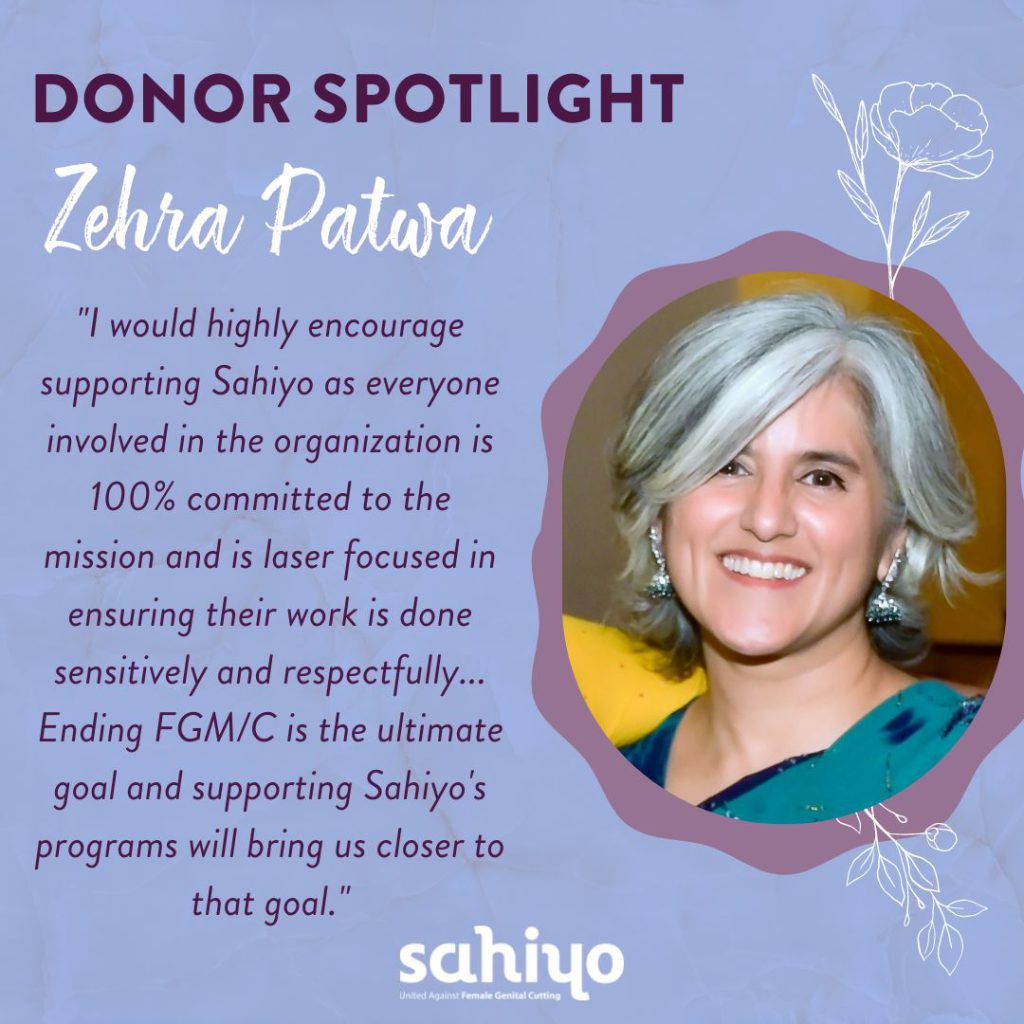
Starting March 8th, International Women’s Day, Sahiyo U.S. will be hosting a virtual silent auction to raise funds and awareness for our programs and services to end female genital cutting (FGC). The auction will open on Wednesday, March 8th, 9am PST/ 12pm EST and close on Sunday, March 12th, 6pm PST/ 9pm EST. We have some amazing sponsors and auction items have been provided by our supporters., To uplift and thank them for their contribution, we’re highlighting who they are and why they support Sahiyo. When and how did your involvement with Sahiyo first begin? Back in 2015, I was invited to join a WhatsApp group of women around the world who were starting to talk about khatna or female genital mutilation/cutting (FGM/C) in the Bohra community. This mighty group of women included the founders of Sahiyo. I had recently learned that khatna was taking place within my community and had also learned that I had been cut as a 7-year old girl. I was still working on accepting that my community perpetrated this harmful traditional practice, but hearing what other women had experienced further reinforced the impact of this practice and spurred me to speak out publicly about khatna. Since then I have been connected to Sahiyo in various ways, as a partner with WeSpeakOut, a retreat organizer, a volunteer, and now, as Vice-Chair of the Advisory Board. Why did you decide to become a donor for Sahiyo’s Inaugural Women’s Day Celebration and Silent Auction? What does giving to Sahiyo mean to you? When Sahiyo came up with the idea of a Silent Auction AND a Comedy Show, I was hooked! It’s such a fun way to do good in the world and I know how hard the staff at Sahiyo has worked to make this event outstanding. This International Women’s Day event is an indication that many people feel passionate about human rights and are willing to do what it takes to ensure girls are safe from harm. I want to see Sahiyo thrive and continue to do its important work to reach as many people as possible. Supporting Sahiyo is very personal to me. Sahiyo’s founders, staff, and volunteers have taught me so many skills to help process my experience of khatna and to help me find my voice so that I can spread awareness and educate others on the risks of the practice. I love to support the amazing work Sahiyo does so that others can benefit from their programs as I have. What did you donate? Two of my friends, who are artists, commissioned pieces for the auction. I’m so excited to share their work with a larger audience! You can now preview Kiran Zaman’s Kiran Zaman’s We Don’t Bow Our Heads, an original mixed media artwork piece derived from the Urdu poem, “We Sinful Women,” by Kishwar Naheed, online. How would you like to see your donation help Sahiyo grow? Sahiyo does so many important things but one thing that I find to be critical is empowering and amplifying the voices of those impacted by FGM/C. One of my favorite Sahiyo programs is the Voices workshop which brings diverse voices together and helps those impacted by FGM/C to share their stories and experiences. I saw, first hand, how impactful this sharing can be when my Voices video was first promoted in 2018. Not only did I benefit personally from telling my story, but I also gained new friends and learned that my story had helped others who were in the same boat as me. Why do you think others should donate to Sahiyo? I would highly encourage supporting Sahiyo as everyone involved in the organization is 100% committed to the mission and is laser focused in ensuring their work is done sensitively and respectfully. If your goal is to positively impact the lives of countless women and girls, you can do no better than to donate to Sahiyo so that they can continue to grow their range of programs to expand that impact even further. Ending FGM/C is the ultimate goal and supporting Sahiyo’s programs will bring us closer to that goal.
Volunteer spotlight: Aries Nuno
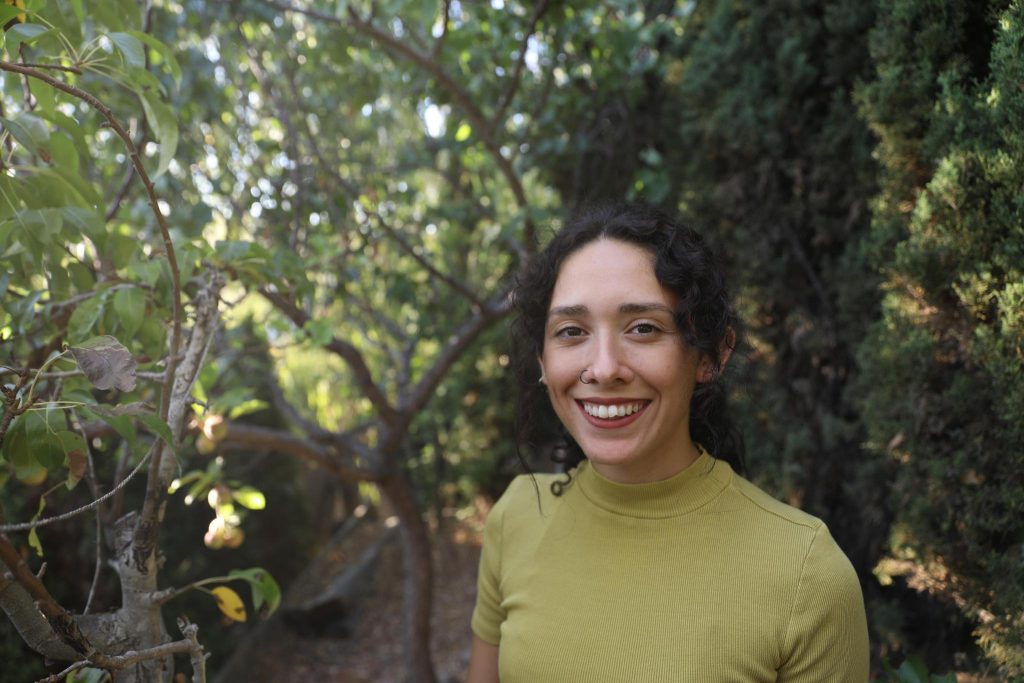
Aries Nuño is a graduate student at Johns Hopkins University pursuing a Master of Science in Public Health, with interests centered around the socio-cultural influences on an individual’s experience with their sexual and reproductive health. Currently, she works for the Center for Communication Programs, where she is actively involved in the formative research process to address FGM/C in Ebonyi, Nigeria utilizing human-centered design efforts. Additionally, she works for the Center for Indigenous Health, primarily supporting the expansion of web-based access to self-administered STI and HIV testing for Indigenous populations across the US. Before her academic journey at Hopkins, she served as a Peace Corps volunteer in Lesotho, co-developing initiatives for reducing the incidence of HIV/AIDS. What was your experience of learning about FGC for the first time like? I might have been in high school at the time, and though I don’t remember the exact moment I first learned about FGM/C, I remember carrying a heavy feeling of discomfort as I tried to wrap my head around the pain and hurt this practice caused. It wasn’t until the COVID-19 pandemic that I revisited the topic, watching a documentary called “The girl who said no to FGM,” highlighting Jaha Dukureh’s story. From there, I invested more time into researching (reading books such as Transcultural Bodies: Female Genital Cutting in Global Context) to learn more about the cultural/traditional relevance of FGM/C, in addition to some of the socioeconomic motives for its continuance. When and how did you first get involved with Sahiyo? I first heard about Sahiyo through a professor at my university whose work involves improving healthcare for women affected by FGM/C. I was seeking opportunities to support organizations and individuals working to end FGM/C in a way that allowed me to contribute my public health background to raise awareness and advocate for change. Once I learned more about Sahiyo’s history as an organization and its multifaceted approach to education and awareness raising, I was eager to support their mission. What does your work with Sahiyo involve? I have been volunteering with Sahiyo for a little over a year now, and I’ve had the opportunity to collaborate on a variety of initiatives. My first assignment with Sahiyo was to assist with a literature review as part of the formative research for their Critical Intersections project, a global study seeking to address ways in which FGM/C interacts with other forms of oppression. Most recently, on the same project, I’ve conducted in-depth interviews with professionals and anti-FGM/C advocates to collect qualitative data regarding their perspectives on how FGM/C intersects with other social justice issues; this was to better understand the challenges and needs of survivors from diverse backgrounds. Other projects over the year have included copyediting reports, assisting in a service provider training session, and developing informational handouts and a screening guide for Sahiyo and StoryCenter’s Voices to End FGM/C program. How has your involvement with Sahiyo impacted your life? My experience with Sahiyo has been invaluable. I am humbled by the compassionate and dedicated individuals I have had the opportunity to meet and work together with. Furthermore, I am grateful to the survivors of FGM/C, whom I’ve had the privilege to listen to and learn from as they shared their experiences and motivation to bring change to their communities. I am more than ever determined to be an ally in contributing to the revolution of gender and health equity. What words of wisdom would you like to share with others who may be interested in supporting Sahiyo and the movement against FGC? Respecting culture and tradition is crucial when addressing the practice of FGM/C. It is important to understand that FGM/C is often perpetuated by cultural and societal attitudes and is deeply rooted in the beliefs and traditions of communities that practice it. As an outsider to the practice, a judgmental approach can alienate the very communities we hope to engage. It is essential to engage with communities in a respectful and culturally sensitive manner in order to work collaboratively and to create solutions that are sustainable and in line with their values and beliefs. By doing so, we can help to create lasting change and promote gender equality while respecting cultural diversity.
